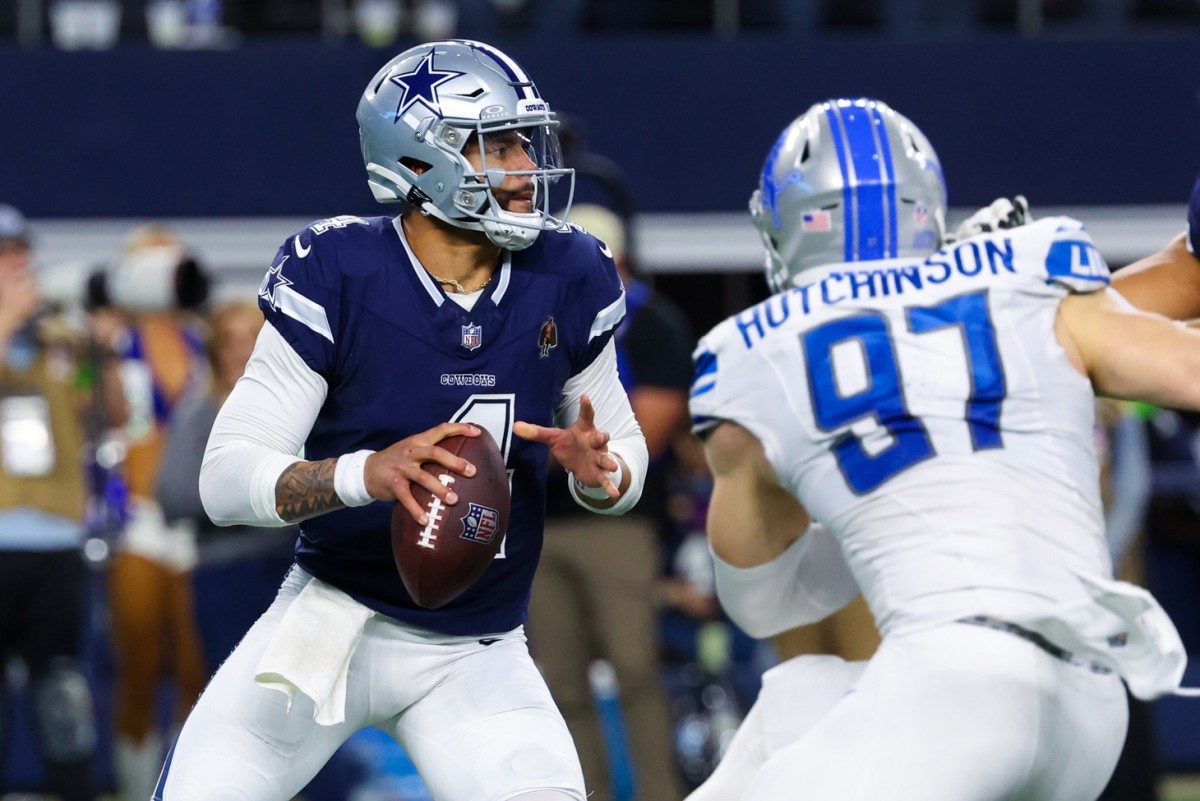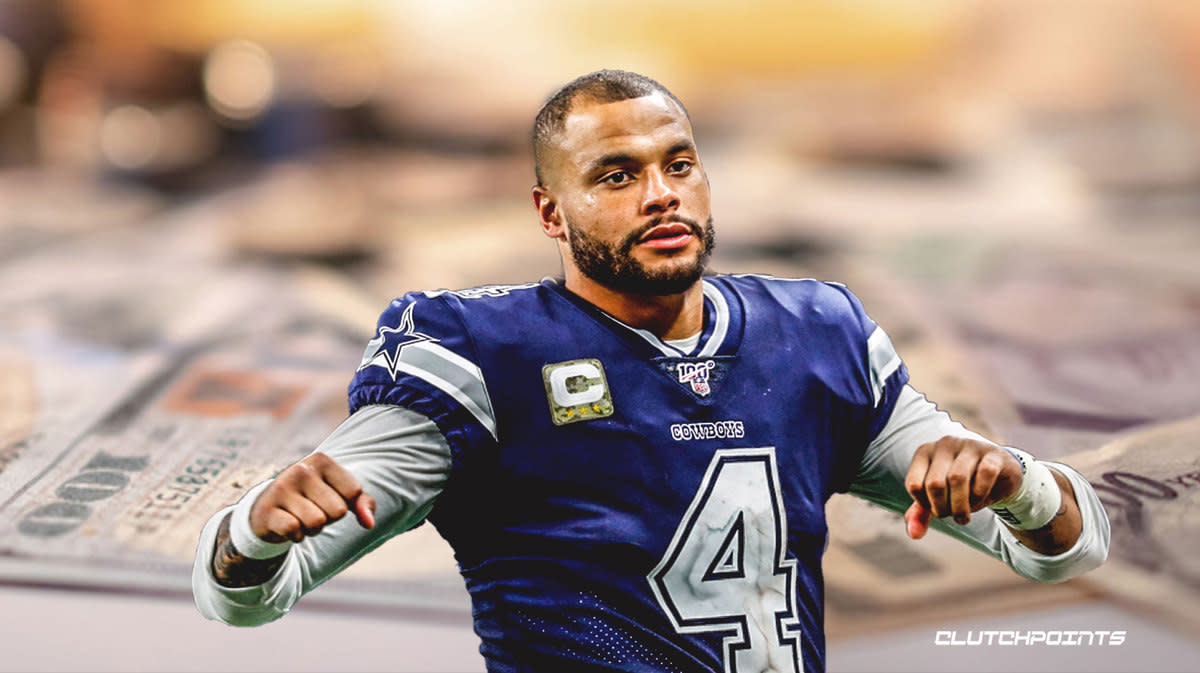Could Cowboys Cut Dak Prescott ‘Salary’ to $1 Million? Inside the 'Switch-Flip' Cap Trick
The football world would be better off without “setting the market” discourse at the quarterback position. Every year, a new draft class is set for extensions and teams desperately attempt to keep veteran quarterbacks in the building. Unsurprisingly, they generally want to be paid more than the last guy.
After the way the Dallas Cowboys’ season ended – a 48-32 home playoff loss to the Green Bay Packers – it’s a safe bet that quarterback Dak Prescott setting the market with a new contract extension would take over the news cycle, at least for a few days.

An extension is the simplest way to avoid Prescott’s massive $59.46 million cap hit for next season. He would likely top Cincinnati Bengals quarterback Joe Burrow’s average annual value of $55 million, perhaps for another four years.
For all the changes looming, from a lame-duck head coach to an aging offensive line, Dallas’ future is increasingly uncertain. Ensuring a top-10 quarterback is under center lessens those blows and should keep the Cowboys competitive.
However, an extension is not yet done and, with a no-trade clause and a no-tag clause in his current deal, Dallas risks losing Prescott for a mere compensatory pick. There’s a chance the two parties enter next season without an extension in place.
That doesn’t necessarily mean the Cowboys will be on the hook for that exorbitant price tag.

As Michael Gehlken pointed out, the “automatic conversion” - or what we've long called "flipping a switch'' - allows teams to turn part of a player’s salary into a bonus, which – for cap purposes – gets spread out throughout the duration of the contract. (Again, the phraseology we've often used when the Cowboys do this normally: "Converting base to bonus.'')
With two void years (largely a formality to help teams manage the cap) attached to Prescott’s deal, nearly $28 million of his salary can be converted and thus pushed into the next three seasons at a little over $9 million per year.
Some back-of-the-napkin math says that would free up a maximum of $18.53 million and bring his cap hit to $40.93 million, less than other stars like Buffalo Bills quarterback Josh Allen and Los Angeles Rams quarterback Matthew Stafford.
And as a technicality but an eye-popper, as Gehlken points out, Dallas would pay Prescott his $29 million due (most of it in "bonus'') but could make Dak's "base salary'' a measly $1.21 million. Again, a math trick ... but an eye-popper!
In a sense, this is a short-term solution to a long-term problem. It would have Dak still under contract for just the one season (with the "switch flipped'' by March 13, the start of the NFL business year, while negotiations in theory continue) in an affordable manner.
But it doesn't solve the question of who'll be the Cowboys QB in 2025 and beyond.
If the stagnation of the past few seasons has left one disinterested in Dallas’ next steps and hoping for a shiny new rookie quarterback in the near future, this option may be preferable. But remember, there will still come the dead cap from letting Prescott walk – approaching $55 million – which would further hinder the rebuilding effort.
A reminder here: There is no way of "escaping'' the cap hits. Dallas can find ways to eventually "not pay Dak.'' But the cap must be "paid.''
'Surprisingly Passive!' Jerry Jones Ripped By Peter King
Keep that $55 million on the books for 2025 for a QB who isn't here? With edge rusher Micah Parsons and receiver CeeDee Lamb in need of market-setting deals of their own, there’s no telling what a new quarterback’s supporting cast would look like. Trey Lance plus a limited roster is not ideal.
Is this a magic wand of a solution? No. Is it a way for Dallas to avoid a $300 million commitment to Prescott? Maybe. But mostly, is it a way to buy time? That would seem to be the best reason for Dallas to prepare to "flip the switch.''
